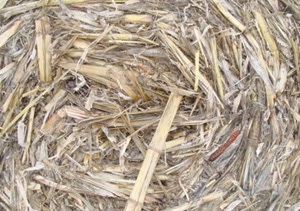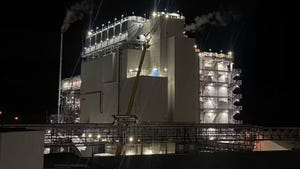Comet Biorefining to build first commercial-scale cellulosic sugar plant in Sarnia
Comet Biorefining Inc. (Ontario, Canada), a provider of sustainable high-quality cost-competitive cellulosic glucose technology for applications in renewable biofuels and biochemicals, has announced that it will be building its first commercial scale biomass-derived sugar facility in the Trans Alta Energy Park in Sarnia, Ontario.
February 18, 2016

Comet Biorefining Inc. (Ontario, Canada), a provider of sustainable high-quality cost-competitive cellulosic glucose technology for applications in renewable biofuels and biochemicals, has announced that it will be building its first commercial scale biomass-derived sugar facility in the Trans Alta Energy Park in Sarnia, Ontario. The plant, with a capacity of 60 million pounds per year will come online in 2018, the company said in the announcement, and will use locally sourced corn stover and wheat straw as feedstock to produce dextrose sugar that can form the basis for biochemical and bioplastic production. Comet Biorefining currently operates a demonstration scale plant in Rotondella, Italy. Using its proprietary patented process, the company converts non-food agricultural biomass—such as corn stover, which consists of residues left in the field after harvest including stalks, leaves, husks and cobs—and forest residues into high-purity dextrose sugars that will be transformed into biobased products, including organic acids, amino acids and bioplastics. These low-carbon biobased products replace traditional petroleum-based materials, reduce greenhouse gas emissions and help contribute to Canada's efforts on climate change.
Comet Biorefining currently operates a demonstration scale plant in Rotondella, Italy. Using its proprietary patented process, the company converts non-food agricultural biomass—such as corn stover, which consists of residues left in the field after harvest including stalks, leaves, husks and cobs—and forest residues into high-purity dextrose sugars that will be transformed into biobased products, including organic acids, amino acids and bioplastics. These low-carbon biobased products replace traditional petroleum-based materials, reduce greenhouse gas emissions and help contribute to Canada's efforts on climate change.
"Construction of this first-of-a-kind plant represents a key step towards the large-scale commercialization of our cellulosic sugar business,” said Andrew Richard, CEO of Comet. “It highlights the important role our technology plays in the value chain, helping to drive the bio economy and reduce greenhouse gas emissions."
Moreover, not unimportantly, Comet dextrose is cost and performance competitive with commercial dextrose sugars, the benchmark raw material for today's biochemical production. As the company points out on its website, the “key success factor in turning non-food biomass into useful end products is the cost of sugar…. Once a low cost form of cellulosic sugar is available, such as that from Comet's cellulosic sugar process, any of a number of end products can be manufactured.”
Ultimately, the company’s goal is to build, own and operate its own plants, as well as to strategically license its technology to select partners on a worldwide basis to meet the growing demand for biobased products.
Comet chose to locate in Sarnia by working together with Bioindustrial Innovation Canada (BIC), the Ontario Federation of Agriculture (OFA) and an Ontario farmers' cooperative on a project to attract sustainable technology providers to the region and to meet increasing demand from chemical suppliers and consumers for low-carbon products.
"Comet's cellulosic sugar technology was one of the clean sustainable technologies recommended, with the best fit for the region and an excellent opportunity to accelerate the growth of the bioeconomy in rural Ontario," noted Dr. Murray McLaughlin, Executive Director, BIC.
To which Don McCabe, OFA's President added: "Establishing new uses for agricultural residues in the biobased chemical supply chain leads to sustainable farms and new markets. Both outcomes are primary goals of the OFA, and this project does just that."
About the Author(s)
You May Also Like


